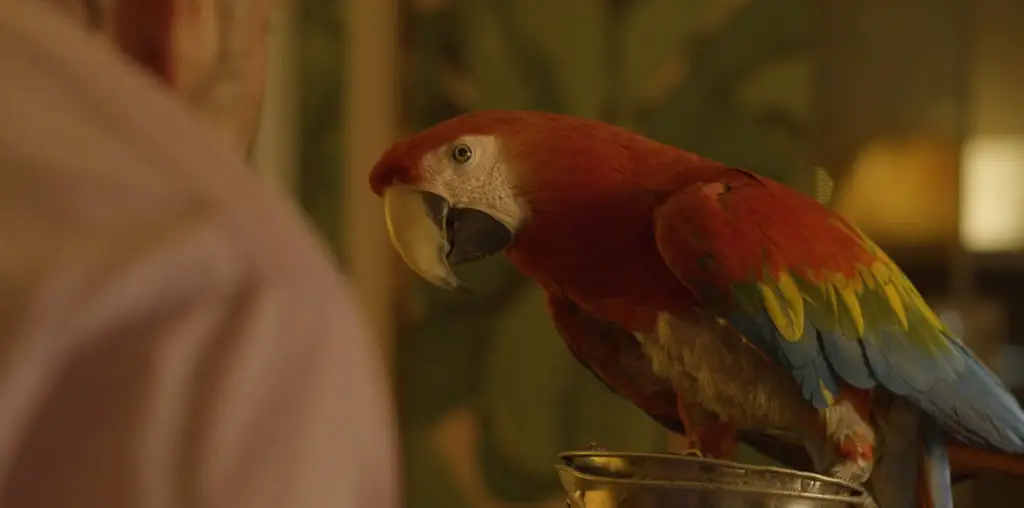
At the time of this writing, Day 2, May 12, 2011 at 1pm EST, we’ve raised $106 on IndieGoGo and $338 on Kickstarter. It’s only Day 2, but to hit our overall goal, the campaign needs to bring in at least $1,200 a day, or $600/day/platform. In other words… a little off the pace.
That said, there’s some timing to consider, particularly that the type of publicity and media that would pay attention to this campaign to spread the word, the film industry and writers, are all covering the Cannes Film Festival and/or Market right now. In other words, there’s still the possibility of some friendly film sites showing some love… next week and beyond. This week however, well… it WAS a soft launch…
Back to the task at hand:
TRACKING AND STATISTICS
I’m going to lead this section off talking about IndieGoGo, simply because they have the most to offer in this category…
INDIEGOGO
Once your campaign is live on IndieGoGo, it’s easy to track the campaign from your project dashboard. On that page, beyond seeing funds and fulfillment information, you can also see overall page views, funders, contributions, number of people who have favorited your campaign and number of referrals. IndieGoGo then goes one step further, with a referral breakdown that shows which campaigners/sources were referring the campaign, and how many referrals they’d made. I’ve captured a screen grab, so you can see how it looks, though I’ve blurred the names of the referral sources and individual contribution amount, just because some contributors don’t want to share said name, or contribution amount, publicly.

Looks nice, right? It’s hard not to keep checking in to see how things are going, view-wise. Even though true interpretation requires more context than just numbers, I do like thinking that the contribution amount is currently equaling about 10% of the campaign views (which means, theoretically, to succeed, this campaign page needs to rack up 300,000 visits… which is a daunting figure).
Anyway, as far as tracking goes, IndieGoGo delivers a very solid base and, if you’re like me and want to add more gibberish data to sort through, I’m also tracking the tweets and Facebook shares outside of the context of the campaign page by using bit.ly to shorten the IndieGoGo page URL, which brings up one criticism of IGG: that URL is far too long to be sharing in simple tweets. Sure, you can tweet direct from the campaign page, but if you don’t have the page open, or just want to tweet or share elsewhere, a consistent, and short, URL is essential. For example, the original IGG link looks like this http://igg.me/p/27692?a=45483&i=shlk (37 characters), but the bit.ly shortened link looks like this http://bit.ly/jLJfUh (21 characters). At the same time, if Twitter is auto-shortening all URLS to 20 characters anyway, my criticism doesn’t really matter there but… the shorter URL does look better in general. The other plus of converting is I can track via bit.ly the number of times the short link is shared, and then that tracking is backed up by IndieGoGo’s own stats.
KICKSTARTER
As far as tracking and stats, Kickstarter tells you how much you’ve made, who contributed and… not much else. Sure, there’s a neat graph so you can see your progress daily but no real data to be had as far as tracking shares or clicks. So I came up with a workaround, again utilizing bit.ly.

The Kickstarter Tracking Workaround: Kickstarter has a shortened URL you can share from the campaign page that is already created via bit.ly HOWEVER you can’t track that, only Kickstarter can. Thus, you need to create your own bit.ly short URL from the full Kickstarter campaign page URL, in this case turning http://www.kickstarter.com/projects/filmthreat/the-return-of-film-threat-magazine into http://kck.st/iYayt4 (it looks like KS code, but it was still made, and trackable by me, through bit.ly).
Additionally, while I have a way of tracking page views here on Film Threat, if I want to track how many times the Kickstarter widget at the bottom of these columns is clicked on, I have to use more bit.ly magic and alter the widget embed code. Basically, replacing the part of the widget code that reads as this http://www.kickstarter.com/projects/filmthreat/the-return-of-film-threat-magazine/widget/card.html with http://kck.st/lPgoME. So the full code changed from:
<iframe frameborder="0" height="400px" src="http://www.kickstarter.com/projects/filmthreat/the-return-of-film-threat-magazine/widget/card.html" width="220px"></iframe>
to
<iframe frameborder="0" height="400px" src="http://kck.st/lPgoME" width="220px"></iframe>
If Kickstarter integrated more tracking tools in their campaigns (or maybe they’re there and I just haven’t found them yet), I wouldn’t have to play around with the different bit.ly URLs, but it’s nice to have another source of statistical info.
MORE TRACKING AND SHARING TIDBITS
Where this campaign is unique is that we’re going fulltime on two platforms, which means we’re piling up a lot of different URLs (which are hard to share… three tweets to promote 1. Film Threat announcement article, 2. IndieGoGo campaign and 3. Kickstarter campaign will drive your friends and followers nuts). Again, bit.ly comes to the rescue, as they allow you to create, and track, link bundles. For example, this link, http://bit.ly/jyg9sV, brings you to a bit.ly page where all three previous links are listed and available for checking out. Additionally, by bundling links already shortened by bit.ly (meaning using http://bit.ly/jLJfUh and http://kck.st/iYayt4 in the bundle), I also can track the individual links at the same time within the bundle.
Another consideration was that the original article on Film Threat had a very ugly link that wasn’t very friendly, particularly if I wanted something easy and straightforward to share via email signature, spoken conversation or podcast. I mean, try telling folks in the podcast to go to https://www.filmthreat.com/features/35275/. Too many slashes to remember, too many numbers. The solution? An URL redirect that allows me to use, and share, https://www.filmthreat.com/print instead. And that is much easier to pass on in conversation.
In tomorrow’s entry, before we head into the weekend, I’ll talk about some other promotional ideas, from banner ads to QR codes, and give reasoning behind the choice of campaign duration. Thanks for reading!



Thanks, Nathaniel. Great read; very helpful.
I’m hopeful that tracking analytics are in the works at kickstarter. I know it’s one of the consistent recommendations they get. Here’s my latest article, 7 things to consider before you launch, but you might find them useful.
http://www.nathanielhansen.com/film-fundraising/the-ultimate-crowdfunding-to-do-list-before-you-launch/
Good luck!
Hi Robin,
Thanks for your question.
We’ve found that the sweet-spot for crowdfunding to be $2,000 – $10,000. We’ve had campaigns raise up to $10,000 – $15,000.
Your project sounds very cool – we’ve seen quite a few pro-social campaigns that mix technology/entrepreneurship with doing good. We’ve actually conducted workshops and lectures at NYU, Columbia University, and other institutions regarding this very topic. There are some additional strategies to conducting campaigns like this and important ways to foster success.
We also have a purely educational site set up that you can check out for more facts and figures: RocketHub.ORG
Also, please feel free to email me directly (vlad@rockethub.com) if you need any support or have additional questions. We pride ourselves on being accessible.
Kind Regards,
Vlad
Vlad,
What’s the largest amount of funds raised on RocketHub? I’m preparing a large funding campaign on IndieGoGo at the moment. I chose them because of their large registered userbase, not wanting to rely only on our team’s social network. What’s your take on funding campaigns well north of $50k? In our case its for a mobile app dev initiative with a humanitarian tie-in driven by mobile payments.
Regards.
Vlad,
Oh, definitely a huge risk running two campaigns, but also a very revealing one. Sure, maybe could’ve spaced ’em out, but that’s just another example of how I maybe would do things differently… but it’s only day 3. I think both will succeed, but until the end, trying not to think too much about how I could’ve done something and instead focus on getting the best results out of the decision I made.
EDITED TO ADD: And Rockethub looks very interesting; very “best of both worlds” approach to the current crowdfunding scene. I’ll be sure to talk about it in a later blog.
Hey Mark,
It’s great to see crowdfunding becoming a mainstream concept – thank you for supporting this industry.
Nice breakdown of the tracking functions. It’s good to see someone taking a careful approach to analyzing crowdfunding.
I suspect that running two concurrent campaigns may hurt you in the end since it’s spreading your audience and diluting your messaging.
Let me know if we can help in any way.
Cheers,
Vlad
RocketHub.com
RocketHub.org